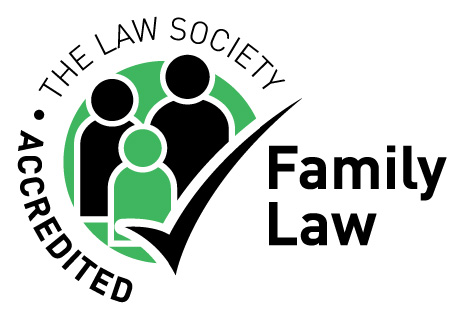Family Mediators Enfield, Finchley, North London and Hertfordshire
Because you know the needs of your family better than anyone
Mediation is a process which helps people who are separating discuss and agree on the best arrangements for their future. It works because it is a voluntary choice and allows you to find a solution personally tailored to you. Mediation can be used to make arrangements for children, discuss finances, or both (known as All Issues Mediation).
Curwens has a dedicated Family Mediation service headed by Sarah Canfield, who began family law work in 1998 and has been conducting mediation sessions since 2012. An all-issues Mediator, Sarah is here to help you both find an amicable solution through a less hostile approach.
"The lady I had spoken to was Sarah and I couldn’t praise her enough, she listened to my views and how I felt as a mother and when it came to a mediation session, I felt like I could get my point across and was able to express my feelings without being interrupted. Sarah was very professional and kept me up to date with everything. If needed to I would defo use her again." Anonymous Client.
Contact our family mediators today in Enfield, Finchley, North London and Hertfordshire
For more information, please complete our online contact form, or call our specialist family lawyers on 0808 168 5588.
- It is NOT relationship counselling
- the Mediator is independent and impartial - facilitating communications and negotiations between you
- the Mediator does not give either of you legal advice – it is up to each of you to decide if you want to have separate, legal representation
- the Mediator can provide information and expertise to help you both reach your own agreed and informed decisions
Initially, you would be invited to a Mediation Information and Assessment Meeting (MIAM). The Mediator will explain the process and the likely cost, and help you decide whether mediation is appropriate for your situation. If you both wish to go ahead, an Agreement to Mediate is signed. Discussions then take place at joint sessions, each lasting around 1½ hours, and usually, 3 or 4 sessions are sufficient to reach a resolution.
There are certain situations, for example, where there are domestic abuse issues or child protection concerns, where mediation may not be appropriate.
Avoids the stress and costs of a Court battle
Resolving all the issues on separation can be very stressful for both of you, even more so when children are involved. Feelings run high and deep divisions can lead to court hearings that may be both emotionally and financially draining.
Allows you both to retain control over your separation process
Mediation is a commonsense alternative for many couples; and because it is your process you get to decide when the meetings take place and what is discussed. This is very different to court proceedings where a Judge sets the dates of any hearing and you are restricted on what issues will be dealt with.
Mediation is much less formal
Family mediation is a more flexible process in which your specially trained Mediator helps you reach agreement on what you both feel are the important issues such as the children, any property and finances or even how you will arrange the separation if you are still living together.
Mediation is often a requirement you need to consider anyway
Before starting most court proceedings regarding financial or children issues, you would need to be able to show you have at least considered Mediation – which involves attending a MIAM (Mediation Information and Assessment Meeting).
At that meeting, the Mediator discusses with you the nature of your dispute and explores whether mediation would be a suitable way to try and resolve the issues. The Mediator also explains how the process works and the costs involved.
Less hostility
Reaching a mutual agreement is better for everyone, especially children who would be upset to see their parents fighting.
Voluntary, still legally binding
No-one can be forced to get involved in Mediation, and any discussions at the joint sessions are confidential and ‘without prejudice’. However, if an amicable agreement can be reached, documents can be drafted and signed to enable the terms to become legally binding on you both.
The choice of Mediator is yours
You wouldn’t get to choose your Judge at court, but you can select your Mediator and it is important to find one with the experience and commitment to help you find a way through any sticking points. Registration with the Family Mediation Council (FMC) is also an essential credential.
Curwens Mediation Service offers a transparent pricing structure. An initial meeting is £100 plus VAT. A MIAM form production is £50 plus VAT. Mediation sessions from 1st meeting are £260 plus VAT per hour. So it’s easy to keep tabs on the cost as you go along.
If you’re separating or divorcing, you and your partner may find it difficult to resolve problematic issues surrounding your finances and the care and welfare of your children, and you may think that your only option is going to court to settle matters. However, in most circumstances, before you can approach the court you are now required by law to attend a Mediation Information Assessment Meeting (MIAM).
The purpose of this meeting is to see if by working with a mediator, a neutral third party, you could resolve the issues between you and avoid the need for court proceedings.
Mediation can be undertaken at any stage and even before separation, and is able to offer couples several benefits:
- It gives families control over important matters such as their finances and how their children are cared for, rather than having the decision of a court-imposed upon them
- It can open up or help to create a dialogue that will assist both partners to deal with issues that arise in the future surrounding the care and welfare of their children
- It is often less stressful, less confrontational, quicker and cheaper than going to court.
The role of a good mediator has been likened to being a combination of ship’s pilot, hospital consultant, midwife and guide. Their job is to be neutral and impartial, seeking out the common ground that exists between couples and using that as a springboard that will create the right environment to enable them to find solutions to their problems.
Many mediators are solicitors or legal advisers, and all have been trained in how to facilitate communication between people who can often be finding it difficult to come to terms with the breakdown of their relationship and discuss issues with their former partner. Whilst mediators can suggest ways in which a dispute might be resolved, they don’t judge or offer their own opinions. They are good listeners and aim to convey the necessary optimism to encourage the participants to thrash out their own workable arrangements.
The mediator will begin by talking to each party separately to establish what they want mediation to achieve for them, and the issues they wish to see resolved. Both sides will then be able to come together under the mediator’s guidance to begin the process of working through the points they wish to be addressed. It is recognised that some people can find it difficult to be in the same room with their former partner, and in that case, the mediator will still be able to help by speaking to each partner in separate rooms and relaying the proposals and conveying their reactions, in the hope of reaching a consensus.
This is known as shuttle mediation. Priorities and timescales will be established from the outset. If there are children involved, then their welfare needs and contact arrangements will be a paramount consideration. If the couple are looking to work out a financial settlement between them, they will need to provide full financial information about all their assets and income.
The overall aim is to reach an agreement and for a “memorandum of understanding” to be drawn up reflecting this and one that both parties feel they can sign up to. In future posts, we’ll look at whether what’s agreed at mediation is legally binding, and what happens in case where an agreement can’t be reached.
Family mediation Referral forms:





















